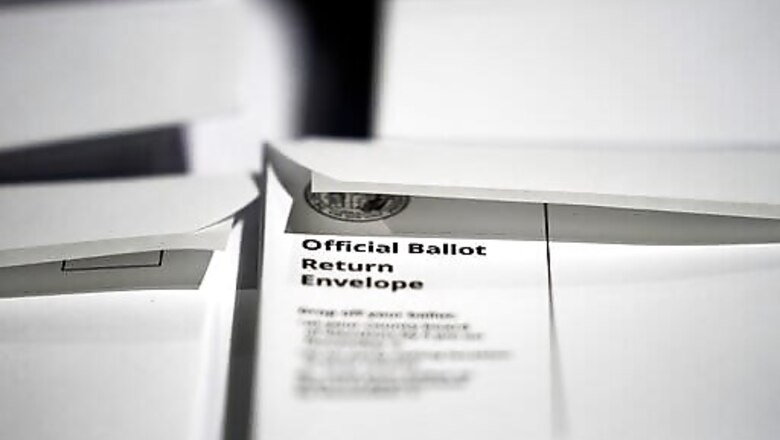
views
A North Carolina court ruled Friday that outstanding restitution, fees or other court-imposed monetary obligations can’t prevent convicted felons from voting if they’ve completed all other portions of their sentence.
The ruling, which may face appeals, could pave the way for an influx of felons to have their voting rights restored amid hotly contested races for the presidency and U.S. Senate in the battleground state. It wasn’t immediately how many were affected by the ruling.
Todays decision is a victory for North Carolina voters and for democracy, said Farbod Faraji of Protect Democracy, who was one of the plaintiffs attorneys.
Lawyers representing the state government defendants didnt immediately respond to an email Friday asking whether they intended to appeal.
The three-judge panel of Wake County Superior Court, which was considering a challenge to state law governing the restoration of voting rights, declined to settle the lawsuit’s arguments that probation, parole and post-release supervision are also unfair impediments to voting for those who have completed their incarceration. The judges said further proceedings were needed to address those issues.
In North Carolina, felons can register to vote again once they complete all aspects of their sentence, which can range from prison time to court fees or restitution.
In a 2-1 decision, the judges ruled that a portion of state law requiring felons to pay all monetary obligations before voting again violates the state constitution because it conditions the ability to cast a ballot on one’s financial means.
In the majority opinion, the judges note that the state constitution requires that one’s property, or financial means, must not affect their ability to vote. Yet, under current state law, the ability for a person convicted of a felony to vote is conditioned on whether that person possesses, at minimum, a monetary amount equal to any fees, fines and debts assessed as a result of that person’s felony conviction, the judges wrote in the opinion.
Therefore, they ruled that the provision of state law regarding the payment of financial obligations violates the equal protection clause of the state constitution. A separate preliminary injunction issued Friday bars the state from stopping felons from registering to vote if the only remaining portion of their sentence is satisfying a monetary obligation.
An attorney for the plaintiffs has previously told the judges that an estimated 56,000 felons who completed their incarceration still couldn’t vote because of other unfinished aspects of their sentence. It wasn’t immediately clear how many of those were prevented from voting solely because of monetary obligations and would benefit from Friday’s ruling.
The plaintiffs, which include advocacy groups and several ex-offenders seeking to vote again, have argued that the 1970s-era state law on restoration of voting rights disproportionately hurts minorities and is racially discriminatory. The plaintiffs have said that African Americans represent 42% of the people on probation, parole and post-release supervision in North Carolina and are unable to vote, even though they make up 21% of the states voting-age population.
State lawyers representing legislative leaders and state elections board members have said the law doesn’t violate constitutional rights because it treats all people convicted of felonies the same by withholding the right to vote.
___
Follow Drew at www.twitter.com/JonathanLDrew
Disclaimer: This post has been auto-published from an agency feed without any modifications to the text and has not been reviewed by an editor




















Comments
0 comment